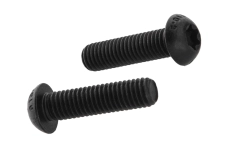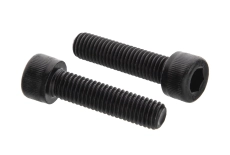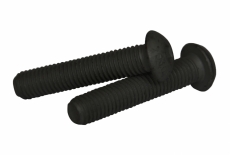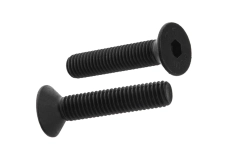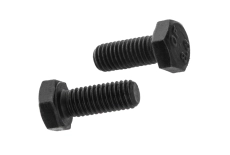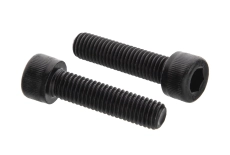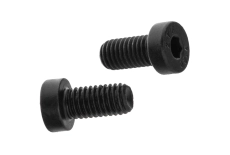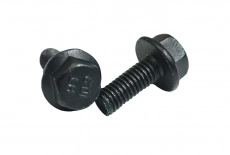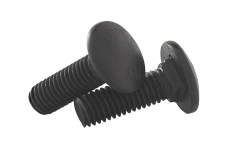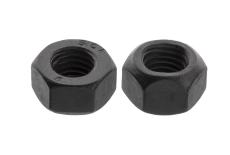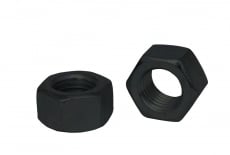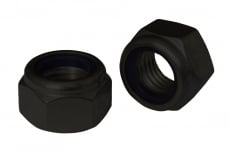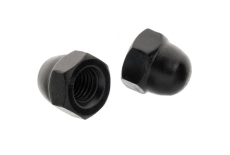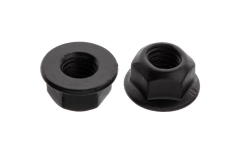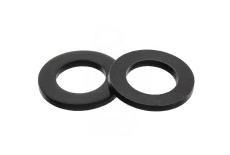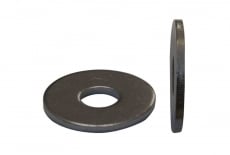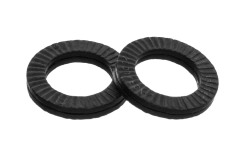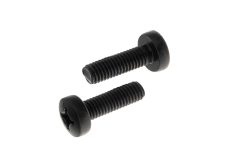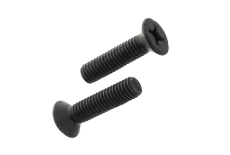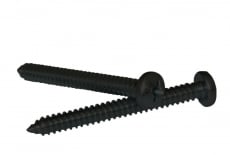What are anti-corrosion coatings and why are they needed?
Anti-corrosion protection plays a key role in ensuring the durability of metal products, especially in industrial and outdoor operating conditions. Corrosion is one of the main causes of premature failure of technical systems, structures, and fasteners. In a humid environment, under the influence of salts, chemicals, and temperature changes, unprotected metal quickly loses its properties. That is why the use of specialized anti-corrosion coatings has become a standard for the production and installation of metal constructions and elements in different spheres
Coatings perform the function of a physical barrier that prevents oxidation, ensures dimensional stability during installation, and also creates a visually attractive surface. This is especially important for fasteners that yield static and dynamic load In such cases, it is important not only to prevent corrosion, but also to ensure a controlled friction coefficient during tightening.
Today zinc coatings, in particular in black colorand, have found wide application in many industries. In the automotive industry, they are used to protect bolts, nuts, screws and chassis elements. In construction, the reliability of connections is combined with the aesthetic appearance of facades and engineering units. Energy, in particular wind and solar, requires fasteners resistant to atmospheric influences. In military and aviation equipment, only the most resistant coating systems are used, because there even minor corrosion can become critical.
Where are coatings most often used?
Zinc-based coatings, particularly black variants, are widely used in industry and energy: from automotive to wind farms. Most often they can be found in: Automotive industry — for protection of bolts, nuts, screws and other fasteners in contact with the external environment. Construction — where not only durability is important, but also the appearance of fastening joints. Energy projects — especially in wind and solar energy, where parts work in difficult climatic conditions. Aviation and defense — where any defect or corrosion can have catastrophic consequences.
In addition, such coatings are actively used in agricultural machinery, railway transport, marine facilities, as well as in everyday life - wherever reliability and durability are required steel products.
|
Black zinc flake is an anti-corrosion coating created on the basis of microscopic plates of zinc and aluminum, which are applied by dipping or spraying. The peculiarity of the technology is the absence of a galvanic process, which eliminates the risk of hydrogen embrittlement. The coating is applied in multiple layers with an organic black top finish that not only enhances the appearance but also adds extra chemical resistance. Zinc-nickel black is a galvanic coating that includes zinc with the addition of up to 15% nickel. Thanks to black passivation and additional top-coat, an aesthetic appearance and higher resistance to aggressive environments are provided. This coating is ideal for the automotive industry, where durability requirements are particularly high. |
Fig.1 New types of anticorrosion coatings: zinc-clad black/zinc-nickel black |
Both options are demonstrated high performance in corrosion resistance tests — up to 1000 hours in salt fog (NSST) without traces of red corrosion.
Zinc cloth black: composition and application technology
Zinc Flake technology
Zinc flake black or Zinc Flake is an innovative coating that does not use an electrolytic process. Nanothe coating in thermodiffusion way.The essence of the method is that individual metals are applied to the part sequentially, and upon further heating, they mutually diffuse, forming a coating of alloys of mixed composition. This type of coating is formed as a result of diffusion from the solid or gaseous phase of aluminum (allithing), chromium (thermochroming), zinc (thermogalvanizing) and other metals into the base metal of the product. The process is carried out at a relatively high temperature, in a vacuum, in a neutral or reducing environment. The product is placed in the applied metal powder, which decomposes at a temperature lower than the diffusion temperature. The thickness of the coating is determined by the temperature and duration of the processin
This technology completely eliminates the formation of hydrogen embrittlement, a phenomenon that is dangerous for high-strength bolts, due to the temperature being lower than in hot-dip galvanizing
Among the leading brands working with this technology stand out Geomet, Dacromet, Machines, Delta MKS, I'm sorry, Ruspert. Their systems can include a base coat and a top coat with a lubricating effect to control tightening torque. This is critical in assembly processes where every newton per meter counts.
Zinc Flake allows you to achieve corrosion resistance of more than 1000 hours in neutral salt spray tests (NSST), which meets the stringent requirements of the automotive industry. The coatings also do not contain Cr(VI).
Zinc-nickel black: a new generation galvanic solution
Composition and characteristics of the coating
Zinc-nickel is it galvanic coating, which consists of zinc with the addition of nickel (from 12% to 15%). It is this metal that gives the coating resistance to an aggressive environment and increases its electrochemical properties. At the end of the process is applied black passivator and sometimes — the finishing organic top cat.
The main characteristics of zinc-nickel:
- Exceptional resistance to corrosion — up to 1000 hours of NSST.
- Durability — less abrasion during repeated twisting/untwisting.
- Compatibility with other metals — is important when installing heterogeneous connections.
- The exact thickness of the coating — controlled at the micro level, usually 8–12 μm.
Zinc-nickel is especially popular in the production of braking systems, chassis, suspensions and fasteners in conditions of high humidity or salt load.
Differences from classical galvanizing
Unlike conventional electroplating, zinc-nickel has significantly higher resistance to red and white corrosion. Has better adhesion for painting or further processing. Its black color is achieved without the use of dyes — only through a chemical reaction in the passivator, which makes it possible to maintain the stability of the shade for a long time.
Key features and advantages of black zinc coatings
One of the main advantages of black coatings is combination of aesthetics and functionality. The black organic topcoat creates a uniform appearance that harmoniously fits into the exterior design of modern vehicles and equipment. But visual appeal is only part of their advantages.
Anti-corrosion protection. Coatings based on zinc or zinc-nickel provide active and passive metal protection. Active — due to the sacrifice of zinc, which protects steel from corrosion, and passive — due to the hermetic film, which blocks contact with the external environment.
Chemical resistance. Such coatings are resistant to the effects of oils, acids, alkalis and fuels, which is extremely important in industrial use.
UV protection Thanks to special additives, black coatings have increased resistance to ultraviolet radiation, which reduces the risk of burning or destroying the surface in the open air.
Adhesion and mechanical strength. The coatings show excellent adhesion — they do not peel, crack or peel even under the influence of loads or vibrations. This is extremely important for bolts, nuts and washers that are constantly subjected to mechanical loads.
Lack of hydrogen embrittlement. It is especially relevant for critical fasteners used in aviation and automotive. Zinc cloth coatings such as Geomet or Dacromet, do not cause penetration of hydrogen into the steel of the product during diffusion of the coating, which is a common problem with others species galvanizing
Controlled friction characteristics. Thanks to the lubricating component in the composition of the finishing layer, a stable coefficient of friction is ensured. This ensures correct tightening without damaging the elements or changing the moment of force.
Presentation with technical information on new types of anti-corrosion coatings:
Brands: who is leading the market?
Among the most famous brands offering similar technologies, we should mention Delta MKS, Geomet, Dacromet, Magni, Zintek and Ruspert. Each of these brands has its own advantages. Delta MKS provides compatibility with black top cats, Geomet and Dacromet are benchmarks for sustainability and durability in aggressive environments, and Magni combines protective properties with a controlled coefficient of friction. Zintek and Ruspert are actively used in construction, where both aesthetics and durability are important.
Today, Zinc Flake technology is synonymous with a modern approach to anti-corrosion protection. It is successfully integrated into production processes and allows you to create coatings with guaranteed characteristics that meet the highest international standards.
Generally black anti-corrosion coatings on the base scarf of zinc and zinc-nickel is a modern solution for the protection of metal products in the most difficult operating conditions. They combine high chemical and mechanical resistance, durability, controlled friction characteristics and attractive appearance. With coatings such as Zinc Flake (Geomet, Dacromet, Magni) and galvanic zinc-nickel systems with black passivation, manufacturers are guaranteed the reliability of their components throughout their lifetime. In both cases, these are technologies that have proven themselves in responsible industries — from the automotive industry to the defense complex. Remember that a high-quality coating is not just a protection of metal, it is a guarantee of safety, efficiency and long service life of the entire structure.
Protective coatings for fasteners play a crucial role in ensuring their durability and reliability. In this article, we discussed one type of such coating, but there are many other options available — each with its own features, benefits, and applications. To learn more about other types of protective coatings, follow the link to our detailed article: Protective coatings for fasteners


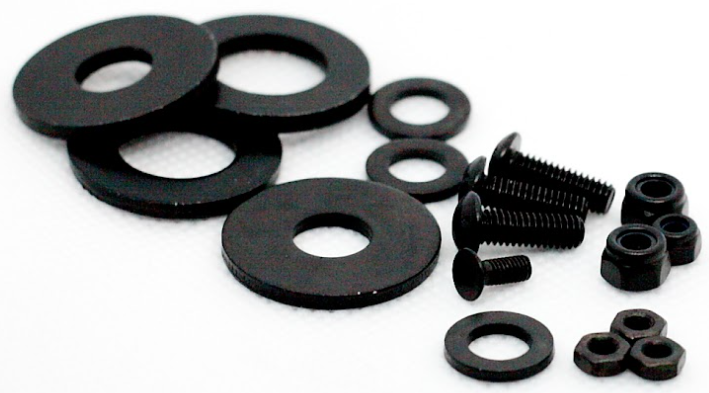
.png)
 Bolts (9)
Bolts (9) Nuts (5)
Nuts (5) Washers, rings (3)
Washers, rings (3) Screws (2)
Screws (2) Self-tapping screws (1)
Self-tapping screws (1)